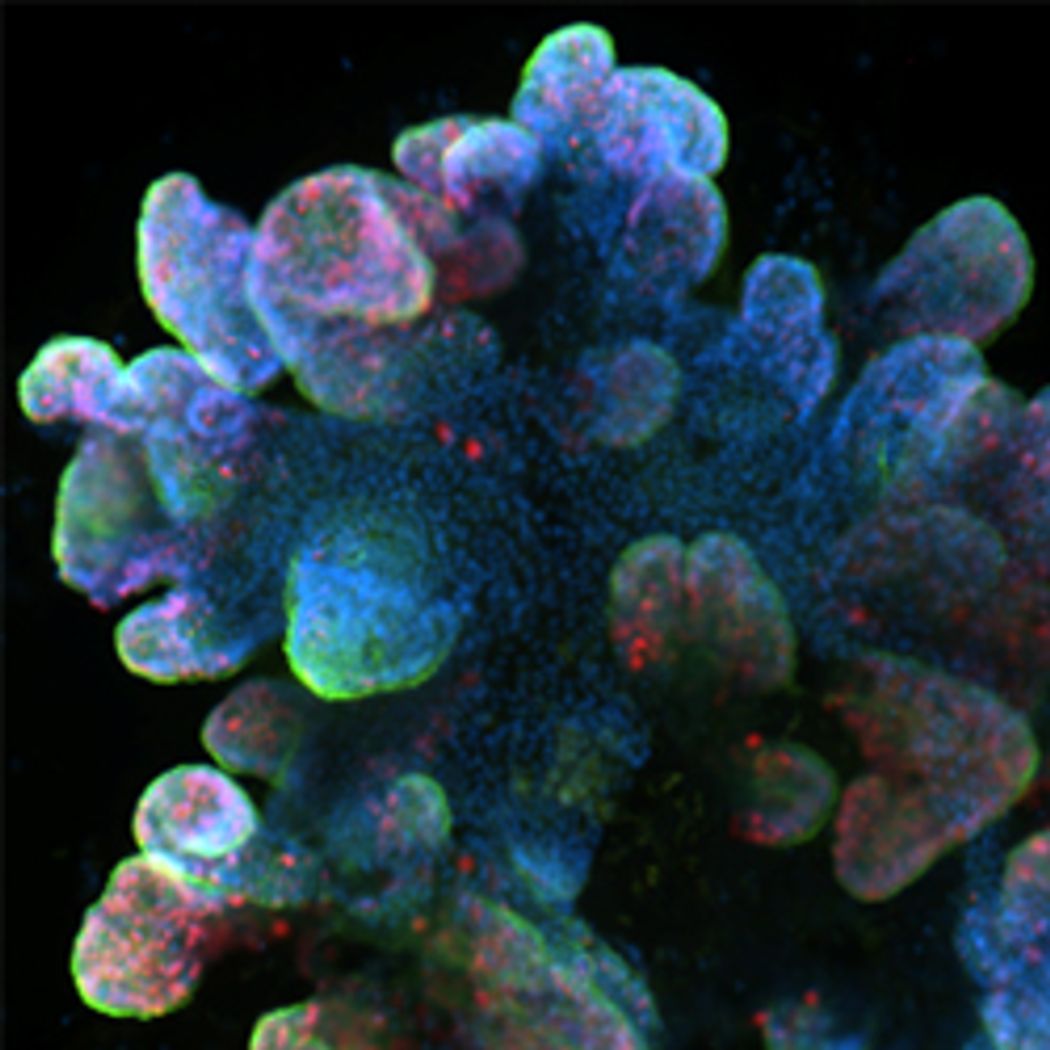
Organoids help scientists mimic cancer’s complex architecture and cellular functions more closely than traditional tumor models.
Sino Biological
Conventional patient-derived tumor models such as 2D cancer cell cultures and in vivo xenografts often face limitations related to cell type diversity, spatial organization, and human disease relevance, as well as being costly in time and resources.1 Recent advances in 3D culture technologies have enabled researchers to create novel physiological systems such as tumor organoids, which help fill the knowledge gaps of traditional techniques. To reduce technical variability and mimic cancer’s complex architecture and cellular functions more closely, scientists need reliable organoid culture and validation materials and consistent organoid research solutions.2
What Are Tumor Organoids?
Tumor organoids are in vitro 3D cultures that originate from stem or progenitor cells, typically derived from human tumors, and subsequently grown in specific media and culture conditions to form cancer-mimicking tissues.2 Multiple human tumor types have been successfully modeled with tumor organoids, helping scientists investigate tumorigenesis and metastasis, develop new patient-specific drug screening techniques, and discover prognostic biomarkers and resistance mechanisms.1
Tumor organoids may contain and maintain key primary tumor characteristics that are absent in 2D cultures, such as heterogeneous cell compositions and 3D architectures, and establishing an organoid model typically requires less time and tissue than developing xenograft models.2 However, culturing tumor organoids requires specific experimental conditions to ensure accurate, reproducible, and relevant insights into cancer biology.1
Considerations for Growing Tumor Organoids
Although researchers must develop and choose specific culture conditions and validation protocols for different tumor types, most 3D culture workflows share several main steps. Scientists begin with pluripotent stem cells (PSCs), adult stem cells, or cancer stem cells, which they may need to first disassociate from human tumor tissue into cell clusters or single cells. Researchers then cultivate the cells in the presence of relevant growth factors and extracellular matrix components that enable proliferation, differentiation, and self-organization into specific tissue architectures.2
Cytokines such as epidermal growth factor (EGF) and fibroblast growth factor (FGF) and small molecule inhibitor cocktails such as YAC (Y-27632, A83-01, and CHIR99021) are required in tumor organoid culture media, with different combinations contributing to distinct lineages within the model.1,2 Selecting the right combination of such components can be a challenge, with different types of growth factors potentially interfering with one another, altering the success rate of modeling specific cancer types, or leading to contamination and outgrowth of normal cell types.3 Protocol and resource standardization and model validation are critical for overcoming these challenges.4
Overcoming Culture Challenges with High-Quality Reagents
Non-standardized tumor organoid culture methods introduce technical variability that reduces scientists’ abilities to accurately represent cancer’s intrinsic properties, functions, and architectures.4 Addressing reagent-based sources of technical variability and establishing robust validation methods for tumor organoid cultures are essential for researchers seeking to employ these models in both basic and translational applications.
To support tumor organoid research, Sino Biological offers a broad range of high-quality cytokines, small molecules, and marker antibodies. Their cytokine products, including EGF and FGF molecules undergo rigorous quality control to ensure bioactivity and stability, supporting organoid proliferation and differentiation. Sino Biological’s small molecule inhibitors, including A83-01 and Y-27632, are highly pure, verified by nuclear magnetic resonance (NMR), and ideal for various tumor organoid cultures. Additionally, their marker antibodies are extensively validated for applications such as immunohistochemistry, immunofluorescence, and hematoxylin and eosin (H&E) staining, enabling precise identification of tumor organoid characteristics and functionality. Sino Biological also provides a comprehensive suite of research solution for organoids, encompassing a variety of physiological and tumor models to fully support researchers’ needs in organoid culture and characterization.
- Qu J, et al. Tumor organoids: Synergistic applications, current challenges, and future prospects in cancer therapy. Cancer Commun. 2021;41:1331-1353.
- Xu H, et al. Tumor organoids: Applications in cancer modeling and potentials in precision medicine. J Hematol Oncol. 2022;15(1):58.
- Veninga V, Voest EE. Tumor organoids: Opportunities and challenges to guide precision medicine. Cancer Cell. 2021;39(9):1190-1201.
- LeSavage BL, et al. Next-generation cancer organoids. Nat Mater. 2022;21(2):143-159.

















